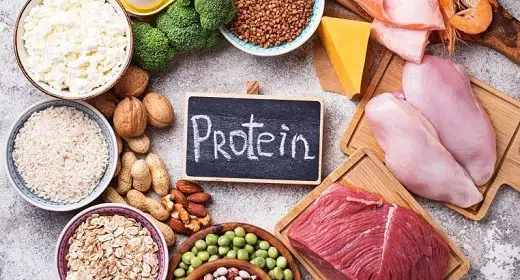Protein consumption increases nitrogen pollution in US waters…
According to research from the University of California, Davis, balancing how much protein you consume with how much your body requires may cut nitrogen releases to aquatic systems in the U.S. by 12% and total nitrogen losses to air and water by 4%.
The amount of protein consumed in the US, from both plant and animal sources, is among the highest worldwide. According to a study published in the journal Frontiers in Ecology and the Environment, despite population growth, estimated nitrogen excretion rates in 2055 for Americans would be 27% lower than they are now if they consumed protein at the recommended levels.
This research is the first to quantify the contribution of protein consumption to excess nitrogen in the environment through human waste. Additionally, it shows that coastal cities have the most potential to lower nitrogen excretions that are headed toward their watersheds.
“It turns out that many of us don’t need as much protein as we eat, and that has repercussions for our health and aquatic ecosystems,” said lead author Maya Almaraz, a research affiliate with the UC Davis Institute of the Environment. “If we could reduce that to an amount appropriate to our health, we could better protect our environmental resources.”
 UC Davis researcher Maya Almaraz in South Africa during a workshop on protein sustainability. Credit: Maya Almaraz
UC Davis researcher Maya Almaraz in South Africa during a workshop on protein sustainability. Credit: Maya Almaraz
Protein shake-up
The human body requires protein. But when a body takes in more protein than it needs, excess amino acids break it down into nitrogen, which is excreted mostly through urine and released through the wastewater system. This brings additional nitrogen into waterways, which can result in toxic algal blooms, oxygen-starved “dead zones” and polluted drinking water.
Based on population data from the U.S. Census, the scientists predicted present and future nitrogen excretion exports. They observed an increased pattern over time, with exports rising 20% between 2016 and 2055. This rise is attributed to both population expansion and an aging population, which needs more protein to minimize muscle loss.
Coastal cities have the most potential
The population of coastal cities is expected to increase significantly over the next few decades, and migration patterns from the suburbs suggest that this growth will typically be accompanied by an increase in the number of nutrients being carried by wastewater, stormwater runoff, and other sources.
According to the research, there is a significant possibility to reduce dietary nitrogen loading to watersheds in coastal cities along the West Coast, Texas, Florida, Chicago, and especially the northeastern United States.
Balance your diet
Sewage contributes 15% of the total nitrogen flux from land to the ocean in North America, the study said. Technology capable of removing 90% of the nitrogen in sewage exists, but less than 1% of sewage is treated with it due to its expense. Eating a diet that balances protein with the body’s needs can be healthier for humans and reduce nitrogen pollution in the environment without additional wastewater treatment costs.
“It’s interesting to think about possible ways to cut into those nitrogen losses beyond expensive technology,” said Almaraz. “Dietary changes are a healthy and cheap way to do it.”

















































